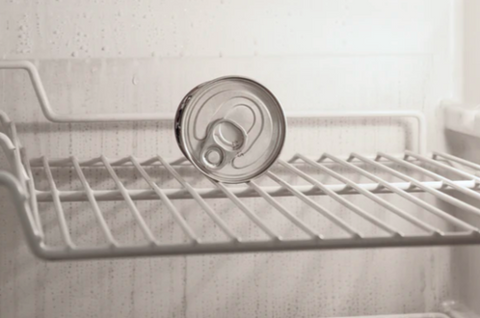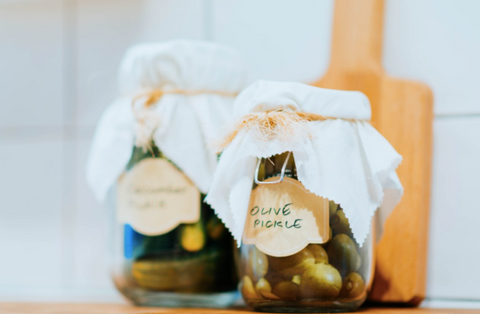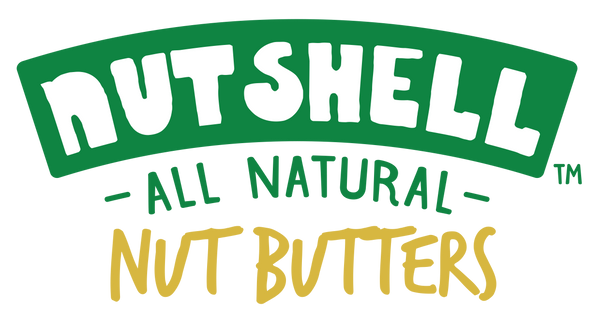
Photo by Jakub Kapusnak on Unsplash
Disclaimer: If you suffer from lactose or gluten intolerances or have hypertension or celiac disease, please consult with your dietitian and doctor before incorporating any new foods into your lifestyle.
In this day and age, a trip to a grocery store can be quite confusing especially if you’re trying to eat healthier. Why? Because there’s an overwhelming amount of products to choose from, so many labels and the question of organic vs. non-organic.
But things shouldn’t be this complicated and sometimes even unattainable. If we simplify our outlook on healthy living it becomes super easy to pick things that can healthify our pantries and fridges.
So what basics should be on our healthy grocery lists? Real food that's nutritious, convenient and delicious all at once. Does it all have to be organic? The quality of the food we eat is important so if organic is easily accessible and affordable for you, it’s certainly great to stock up on it. That said, if it isn’t an option that shouldn’t deter you from shopping for real, unprocessed foods. So basically as a start, stick to products that have a short list of ingredients, that aren’t high on preservatives. and that don’t come in boxes.
To help you get started with cooking simple, easy and delicious meals at home we’ve created a grocery list that covers all the basics and we’re sure it’ll transform the way you shop. When browsing healthy grocery markets in Lebanon keep an eye out for the amazing local healthy products they stock.
Steps to building a healthy pantry

Now before you grab a pen and paper (or open up your shopping list app) you need to make space for new groceries in your fridges and pantries. Check expiration dates, clear out highly processed foods and get your kitchen organized.
Next, we highly recommend that you sift through the cooking equipment you’ve got on hand. After all, you need a few essentials to whip up delicious meals with your healthy groceries.
These include the following: Chopping boards, a good set of knives, a food processor, a hand-held mixer/blender, mixing and prep bowls, pots, pans, wok, grill pan, spatulas, measuring cups and spoons.
Finally comes the shopping list, write or type yours out based on your needs using the basic categories listed below and get ready to stock up on the essentials:
FRUITS

Photo by: Tanalee Youngblood on Unsplash
You can never go wrong with fruits, whether you pick fresh, dried or even frozen.
- Apples,
- apricots,
- avocados (yep, they count as fruits)
- Bananas
- Berries
- Cantaloupes
- Cherries
- Clementines
- Figs
- Grapefruit
- Grapes
- Kiwis
- Lychees
- Mandarins
- Mangos
- Melons
- Nectarines
- Oranges
- Papayas
- Passion fruit
- Pears
- Pineapples
- Plums and prunes (khokh)
- Pomegranates
- Tangerines (afandi)
- Watermelon
VEGGIES

Photo by Nadine Primeau on Unsplash
With vegetables, the more, the better. You can pick fresh or resort to frozen when you’re in a pinch. Frozen vegetables get a bad rap but research has shown that they can contain even more nutrients than fresh because they’re picked when in season. Just make sure that when you buy frozen, the kind you get doesn’t include any added salt or sauces. Veggies you can stock up on include but aren’t limited to:
- Apples
- Artichoke
- Aubergine
- Asparagus
- Broccoli
- Brussels
- Sprouts
- Cabbage
- Carrots
- Celery
- Endive
- Fennel (shumra)
- Chards (sele’e)
- Kale
- Spinach
- Bok choy
- Lettuce
- Arugula (hindbe)
- Rocket leaves
- Garlic
- Onion
- Shallot
- Leek (basal akhdar)
- Chives
- Parsely
- Bell pepper
- Beetroot
- Ginger
- Radish
- Tomato
- Zucchini
- Squash
- Pumpkin
- Mushrooms
- Sweet potatoes
- White potatoes
Meat and Poultry

Good quality protein is essential as part of a healthy lifestyle and you can find some in the following (fresh or frozen):
- Chicken cutlets, breasts or thighs (make sure they’re skinless and boneless)
- Turkey meat works great too
- Not to forget eggs, which can make a perfect breakfast, a light lunch or dinner. Free range eggs are the best but should be cooked well.
- Lean beef, steaks and lamb cutlets are good options but try to find 85-90 percent lean and it’s even better to buy grass fed.
- Cold cuts including mortadella and turkey. These are popular options, especially among kids in Lebanon but it’s important to limit their consumption because they’re high in salt, additives and nitrates/nitrites.
Fish and Seafood

Photo by Caroline Attwood on Unsplash
Delicious, high in protein and healthy fats, what more could we ask for? Eating a variety of fish and seafood is super for our health. You can opt for:
White fish
- Salmon
- Fish fillets
- Crab
- Lobster
- Shrimp
- You can also choose tuna and sardines, just make sure they're stored in water rather than vegetable oil
Dried Beans and Pulses

Photo by Monika Grabkowska on Unsplash
Nutritious, delicious and convenient, these can be bought in bulk and stored in your pantry. They can also be prepped ahead of time and stored in the fridge. A definitive list of them must include:
- Lentils (green, brown, orange)
- Chickpeas, broad beans
- Fava beans
- Kidney beans
- Garden peas
- Black-eyed peas
Canned beans and pulses

Photo by Enrico Mantegazza on Unsplash
When you’re short on time you can definitely resort to canned beans and chickpeas. You can also look for brands that store them in glass jars. The key here is to read the label to make sure the kind you’re purchasing doesn’t include loads of preservatives.
Nuts & Seeds

Photo by Maddi Bazzocco on Unsplash
Make sure to get these with no added salt, sugar or oil. Natural or roasted versions are best. You can try a variety or pick your favorites among:
- Cashews
- Pistachios
- Walnuts
- Brazil nuts
- Almonds
- Macadamia nuts
- Peanuts
- Hazelnuts
- Pine nuts
As for seeds, our picks would be:
- Flaxseeds
- Chia seeds
- Sunflower seeds
- Pumpkin seeds
- Sesame seeds
- Poppy seeds.
Nut Milk

Photo by FOODISM360 on Unsplash
Superb for those with lactose intolerance and everyone else wanting to add an extra healthy boost to their meals. There’s a wide variety on the market in Lebanon including:
- Almond milk
- Cashew milk
- Coconut milk
- Hazelnut milk (just make sure you’re buying an unsweetened variety)
Nut Butters and Seed Butters

Versatile, delicious and super healthy (when bought right) you really can’t go wrong with nut butters. Some varieties available on the market are highly processed, so make sure to read labels. The only ingredients that should be featured are nuts and a few healthy ingredients like honey, cinnamon, spices and coconut oil. All in all, nut butters make for super convenient filling breakfasts, pre/post workout snacks, and dinners. Try using:
- Peanut butter
- Almond butter
- Cashew butter
- Cocoa hazelnut butter
- Tahini is a superb option for a spread or as a sauce too
Grains

Photo by Eiliv-Sonas Aceron on Unsplash
When shopping for grains make sure to look for wholegrain items. Why? Because they're loaded with fibre and keep you full longer. Instead of refined white versions opt for:
- Wholemeal pasta
- Wholegrain rice
- Brown rice cakes
- Brown bread
- Brown toast
- Wholemeal flours
- Though they don’t fall under this category, you can look into almond flour and coconut flour
Herbs and Spices

Whether dried or fresh, nothing adds flavor to dishes like herbs and spices do. They’re also great alternatives for extra salt in your meals, more herbs and spices, less salt is the way to go. The dried list is expansive but easy to find in Lebanese supermarkets and grocery stores. It includes:
- Black pepper
- White pepper
- Marjoram
- Cumin
- Cardamom
- Saffron
- Paprika
- Oregano
- Thyme
- Mint
- Basil
- Parsley
- Coriander
- Italian seasoning
- Seven spices
- Allspice
- Anise
- Nutmeg
- Bay leaves
- Caraway
- Cayenne pepper
- Chicory
- Chives
- Dill
- Fennel
- Rosemary
- Ground ginger
- Ground cinnamon
- Cinnamon sticks
- Lemon grass
- Licorice
- Peppermint
- Poppy seeds
- Sage
- Tarragon
- Turmeric
- White mustard
- Sumac
As for herbs that you can also use fresh, the list includes:
- Parsley
- Coriander
- Mint
- Basil
- Thyme
- Chives
- Dill
- Sage
- Oregano
Oils

Photo by Jessica Lewis on Unsplash
Essential oils that should always be in your pantry are:
- Extra virgin olive oil
- Vegetable oil (without additives) and cold pressed if available.
- Coconut oil
Condiments

Photo by Dennis Klein on Unsplash
Lifting dishes up shouldn’t translate into adding sauces heavy in sugar and additives instead we can use things like:
- Sugar-free mustard
- Hot sauce
- Sriracha
- Tabasco
- Low sodium soy sauce
- Tamari sauce
- Tomato sauces
- Pomegranate molasses ( Robb el Ruman)
- Other condiments that are sugar and additive free
Pickles

Photo by chuttersnap on Unsplash
Pickled foods carry several health benefits but quality is key. If you’re buying from grocery stores make sure the label is free from preservatives and sugar. If you have blood pressure problems consume pickles in moderation. Try:
- Cucumbers
- Sauerkraut
- Kimchi
- Red cabbage
- Any kind of vegetable
- Olives
Vinegars

Photo by Joanna Kosinska on Unsplash
Drizzled on salads or used as sauce bases, vinegars are a go-to essential in every healthy pantry. Try a few or all of its various versions:
- Balsamic vinegar
- Red vinegar
- White vinegar
- Grape
- Apple cider vinegar
Beverages

Sugar-filled juices and beverages can be replaced with things like:
- Juices that aren’t made from concentrate
- Smoothies
- Kombucha
- Kefir
- Laban 3eeran
- Tea
- Coffee
- Lebanese zhoorat (a mix of herbs and fragrances)
-
Cocoa based hot drinks with natural sweeteners
Snack Foods

Photo by twinsfisch on Unsplash
Who said deprivation is an integral part of healthy living? It’s really not. You can still enjoy everything you like in moderation and yes that includes snacks. Today, there are so many local Lebanese brands that offer healthy baked goods including:
- All-natural cookies (free from additives or preservatives)
- Whole grain crackers
- Thyme kaak
- Gluten-free treats
- Dark chocolate (75 percent dark +)
- Energy bars/Energy balls free from sugar and from made from nuts, fruits and date paste.
- Vegetable or fruit chips ( free from sugar, preservatives and colorings).
Sweeteners

Photo by Heather Barnes on Unsplash
Away with the refined sugars and in with things like:
- Honey
- Maple syrup
- Carob molasses
- Date syrup
- Grape molasses
- Applesauce
- Coconut sugar
- Agave syrup
- Rice syrup
Spreads

Photo by Natural Chef Carolyn Nicholas on Unsplash
Spreads including jams can be part of a healthy lifestyle. Just make sure you find ones that are sugar-free and made from fruit puree or fruit concentrate. Beware of products that are free of sugar but laden with artificial sweeteners. Homemade options are best here because even though they do contain sugar, they’re all-natural. As with everything, enjoy these products in moderation.
Oatmeals and Cereal

Photo by Cleanlight Photo on Unsplash
Processed boxed cereals and grains are the last thing you need for breakfast. Instead, try to find options without added sugars, refined grains and also without preservatives.
- Unrefined grains like steel-cut or rolled oats
- Cereals
- Muesli
- Granola
Dairy

Photo by Tanaphong Toochinda on Unsplash
Dairy makes for a superb source of calcium and protein. In Lebanon, we’ve got a wide variety of white cheeses and baladi products that are all the more healthy. Enjoy a selection of the following as part of your lifestyle:
- Milk (Full fat/low fat. If you’re buying low fat make sure the product you choose does not contain any added salt or sugar to compensate for the loss of fat).
- Cheeses (Aakkawi, double creme, halloumi, bulghari, mozzarella, feta, cottage cheese and aged cheeses like gruyere or parmesan.
- Yogurt is an essential dairy product that’s loaded with probiotics. Skip versions loaded with additives, sugars, colors and sweeteners. Instead, mix plain yogurt with fruits, a dash of honey (you can get creative with your toppings) rather than buying sweetened versions.


























1 comment
Updated my shopping list!